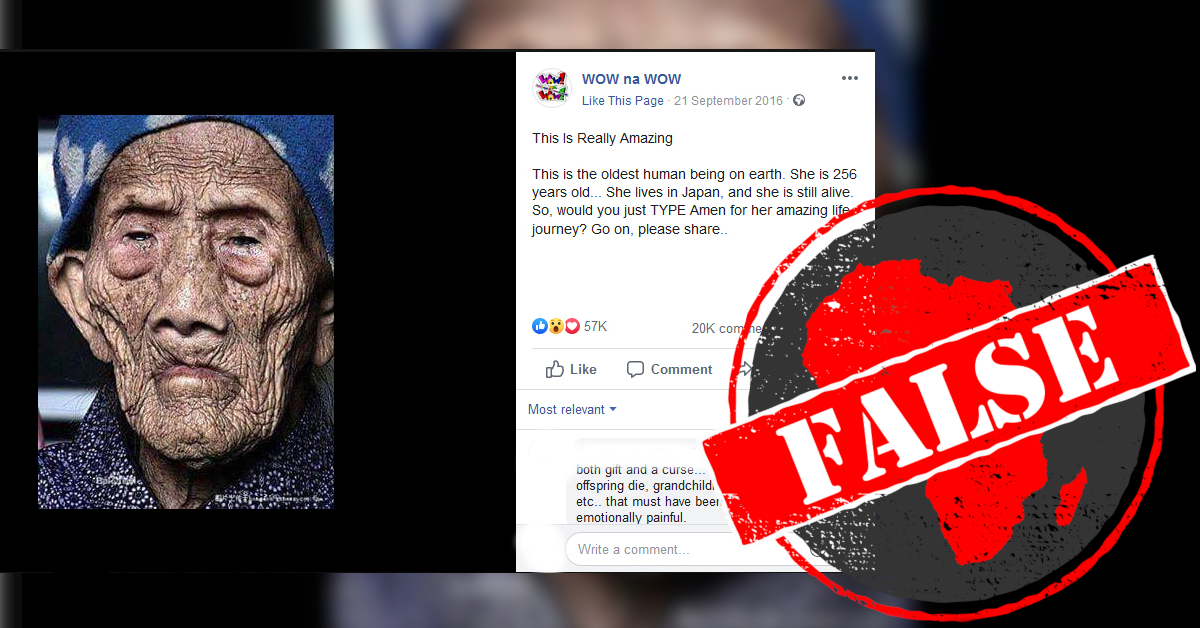Is this a photo of a 256-year-old woman “who lives in Japan”?
No person in recorded history has ever lived that long.
Still, a Facebook post claims the photo shows “the oldest human being on earth. She is 256 years old... She lives in Japan, and she is still alive. So, would you just TYPE Amen for her amazing life journey? Go on, please share.”
The post has been shared almost 300,000 times. A South African user flagged it as false, so Africa Check had a look.

A reverse image search reveals that the photo is of Luo Meizhen, a Chinese – not Japanese – woman, who died in 2013.
It was reported that she was 127 years old when she died – a good 129 years younger than the woman the Facebook post claimed was “still alive”.
A number of English-language sites from China show the image of Luo used in the Facebook post.
It’s even been disputed that Luo was as old as 127 years when she died.
But a couple of things are certain: she’s not “still alive” at 256 years old, and she wasn’t “from Japan”. – Africa Check (24/05/19)
No person in recorded history has ever lived that long.
Still, a Facebook post claims the photo shows “the oldest human being on earth. She is 256 years old... She lives in Japan, and she is still alive. So, would you just TYPE Amen for her amazing life journey? Go on, please share.”
The post has been shared almost 300,000 times. A South African user flagged it as false, so Africa Check had a look.

127-year-old woman from China
A reverse image search reveals that the photo is of Luo Meizhen, a Chinese – not Japanese – woman, who died in 2013.
It was reported that she was 127 years old when she died – a good 129 years younger than the woman the Facebook post claimed was “still alive”.
A number of English-language sites from China show the image of Luo used in the Facebook post.
It’s even been disputed that Luo was as old as 127 years when she died.
But a couple of things are certain: she’s not “still alive” at 256 years old, and she wasn’t “from Japan”. – Africa Check (24/05/19)
Republish our content for free
For publishers: what to do if your post is rated false
A fact-checker has rated your Facebook or Instagram post as “false”, “altered”, “partly false” or “missing context”. This could have serious consequences. What do you do?
Click on our guide for the steps you should follow.
Publishers guideAfrica Check teams up with Facebook
Africa Check is a partner in Meta's third-party fact-checking programme to help stop the spread of false information on social media.
The content we rate as “false” will be downgraded on Facebook and Instagram. This means fewer people will see it.
You can also help identify false information on Facebook. This guide explains how.


Add new comment